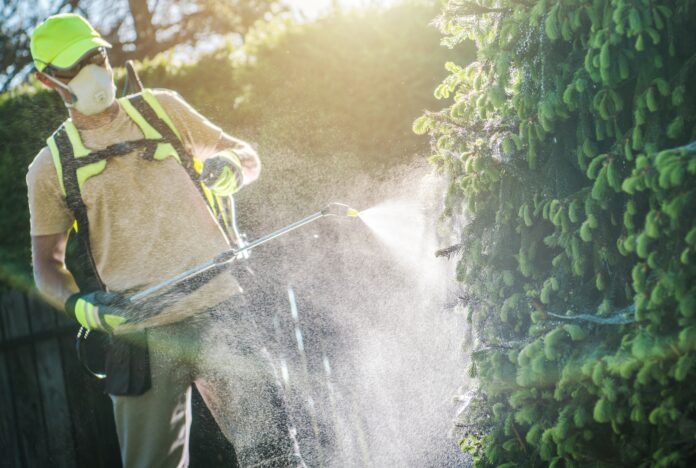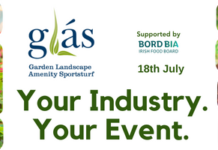The exposure science group at NUI Galway are seeking professional gardeners to participate in their study on human exposure to pesticides.
The EIRE research project – “Neonicotinoid Insecticide exposures” – aims to measure human exposure to a class of insecticides known as neonicotinoid insecticides (NNIs). These substances are used intensively worldwide on plants, and producers generate global sales worth more than $3.5 billion. However, many NNIs are known for their harmful effects on bees, and now there are increasing concerns about the adverse health effects on humans.
The EIRE study aims to fill the knowledge gap by investigating professional gardeners’ exposures to NNIs using human biomonitoring methods. Researchers will ask workers who participate in the study to collect urine samples before and after completing a work task, which will then be analysed for NNIs and their breakdown products. Workers using insecticides containing NNIs products as part of their work duties are invited to participate.
The EIRE study will give scientists a better understanding of human exposure due to occupational uses of NNIs.
Principal Investigator of the EIRE research project, Dr Alison Connolly, School of Natural Sciences, NUI Galway, said: “To determine the risk of any chemical, there is a requirement to know the expected exposure level. Currently, in Europe, there is a lack of data on human exposure to chemicals, including pesticides, particularly neonicotinoid insecticides, due to their intensive and widespread use.
“These studies allow researchers to better estimate the range and magnitude of exposures, which is required to fully understand how chemical exposures affect human health, to better manage exposures and inform policy.”
Exposure Science Lecturer Dr Marie Coggins, said: “Some NNIs are known to have harmful effects on pollinators, but there are increasing concerns about their potential to cause adverse health effects in humans. We need further data on human exposures to inform human health risk assessments and the regulation and market of such chemicals – where better than to start than with gardeners who may use these chemicals regularly.”
If you want further information on the study, please contact the project lead, Dr Alison Connolly (Alison.connolly@nuigalway.ie).
Some facts about neonicotinoids from the EU Commission
- Neonicotinoids are active substances used in plant protection products to control harmful insects, which means they are insecticides
- The name literally means “new nicotine-like insecticides”. They are chemically similar to nicotine
- The name neonicotinoids is sometimes shortened to “neonics” or “NNIs”
- The first neonic was approved in the EU in 2005
- Neonics are systemic pesticides. Unlike contact pesticides, which remain on the surface of the treated parts of plants (e.g. leaves), systemic pesticides are taken up by the plant and transported throughout the plant (leaves, flowers, roots and stems, as well as pollen and nectar)
- Neonics are much more toxic to invertebrates, like insects, than they are to mammals, birds and other higher organisms
- Neonics affect the central nervous system of insects, leading to eventual paralysis and death
- They are also common in veterinary applications such as tick control and flea collars for pets










